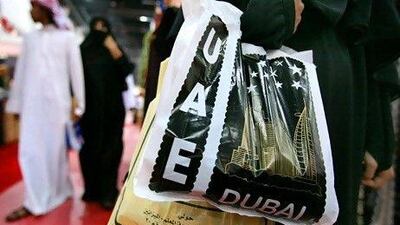GCC governments are likely to delay plans to roll out a value-added tax (VAT) in the region as the Arab Spring and the financial crisis sap political will for the levy, says a top regional tax expert.
The 2015 target date for the introduction of the tax was "optimistic", said Finbarr Sexton, a tax partner at Ernst & Young in the Middle East and North Africa.
"We have had the Arab Spring and the global financial crisis, and since [then] most governments are reluctant to introduce tax regulation, which impose an additional cost burden," he said.
Governments in the region have been mulling the introduction of VAT in recent years to widen their revenue income to pay for public services. Most recently 2015 was discussed as a potential launch date, according to UAE Ministry of Finance officials. But governments have bolstered their public spending in the past two years. The global financial crisis led many states to roll out big stimulus plans to support their economies.
Instability in parts of the wider Middle East also prompted a rise in government handouts to citizens. Saudi Arabia last year unveiled spending packages of US$129 billion (Dh473.85bn), including funds for housing loans and aid for the jobless.
As a consumption tax on certain goods and services, VAT may appear at odds with recent efforts to help citizens, said tax experts. Companies would also face the initial cost of implementing the system. Mr Sexton said the 2015 deadline was also unlikely as at least two years would be needed for a public awareness campaign about VAT and to allow firms time to prepare their IT systems.
Officials at the IMF have long urged GCC states to introduce the tax as a way of ensuring a reliable inflow of government revenues, safeguarding against volatility in oil prices. But while many experts still expect VAT to happen at some point, they say the time frame is increasingly hazy.
"In light of the recent political and economic circumstances, it's increasingly difficult to predict what will happen with fiscal reform in the region," said Dean Rolfe, PwC's Middle East tax leader. "With the absence of political will it may be pushed back in the short-term."
Governments have indicated they would like to impose VAT at a GCC level. But differences between states mean most states would likely bring in the tax at a country level.
"Some will focus on oil and others on financial services. One size does not fit all and they have to decide what the impact will be on their national citizens and to make sure they are still attractive as a destination for foreign direct investment," said Sherif El Kilany, a regional tax expert at Ernst & Young.
Governments also have to decide which goods and services would apply to the VAT. Petrol and other goods are subsidised by some governments.
"I don't think it would be as controversial as some people have suggested, said Giyas Gokkent, the chief economist at National Bank of Abu Dhabi. "The core commodities would likely be excluded, like food items and medicine, and if it was introduced it would likely be phased in."
twitter: Follow and share our breaking business news. Follow us

